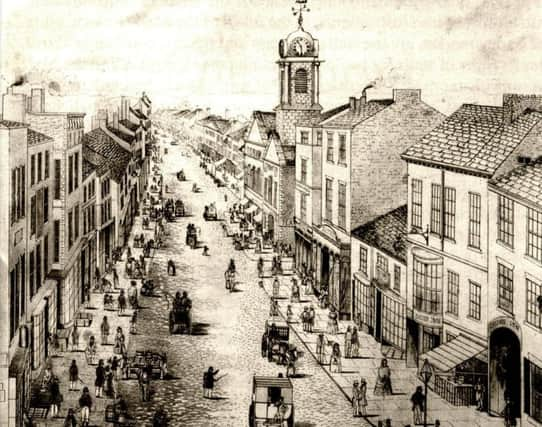Policeman killed by rabies when deadly disease gripped Preston


Police officer John Parker was attempting to catch a mad dog when he was savagely bitten several times on the thumb and hand.
The spaniel was running amok along Friargate, in Preston,when it attacked the policeman, four other men and a nine-year-old boy on November 28, 1868.
Advertisement
Hide AdAdvertisement
Hide AdEventually it was seized after fleeing into a house in Back Bolton Street where it was cornered in an upstairs room and taken away to be destroyed.
Three months later on February 10, 1869 the youngster, Joseph Weights, died of hydrophobia, also known as rabies. He had been bitten five times by the rabid spaniel with several wounds going right through his hand.
PC Parker, of Hilton Street, was left with severe bite wounds to his hand and after cleaning the area with hot water went to see a doctor who cauterised his wounds. But the policeman feared for the worst as rabies had been blamed for several deaths in the town.
Around the same time Joseph, who lived in St Paul’s Square was killed, a second child died of rabies in Preston after being attacked by a dog in a separate incident. Three days before Christmas 1868 five-year-old Frank Wrigley was severely bitten on the lip by his father’s terrier at the family’s home in Adelphi Street.
Advertisement
Hide AdAdvertisement
Hide AdMr Wrigley attempted to suck all of the blood from the wound and then took his son to see a doctor. The pet was put down and the Wrigleys thought everything was OK until Frank fell in March 1869 complaining of a sore throat. As his condition deteriorated the child starting rambling and refused to drink any water. Just two days later he died .
Mayor of Preston John James Myres issued a crackdown and a series of raids were carried out by police across Preston, animals seized and subsequently put down at the town’s police station using prussic acid. He also ordered all dogs should be confined for a period of six months until the end of October.
And he meant business as within days nine people were hauled before Preston Magistrates’ Court after their pets were found in the street.
Each was warned they would face a £5 fine if they flouted the Mayor’s order again. A newspaper report at the time explains: “A short time before the mayor’s orders were issued the disaffection had so widely spread, and had arrived at such an intense development in the large number of stray dogs that infested the streets, that a person could scarcely walk through the town without running the risk of being attacked by some ferocious animal suffering from the savage mania.”
Advertisement
Hide AdAdvertisement
Hide AdNine months after the Friargate attack PC Parker’s worst fears were realised when he started to feel unwell while on duty on a sunny afternoon at Preston Cricket Club.
A newspaper report from the time picks up the story, “On getting home at night he grew worse, seemed to ‘bark’ a little and tried to bite one or two of his children. Medical aid was called in, but it was of no avail; indeed nearly all the doctors in the town saw him during the night and on Sunday, but none of them could do him any good.
“He had very violent convulsions, foamed at the mouth, and showed the most distinct signs of hydrophobia. On Sunday evening he was removed to the House of Recovery where he died about nine o’clock.”
The tragedy hit the Parker family particularly hard coming five months after the death of the police officer’s wife, leaving six children orphaned aged between three and 13. It was claimed Mrs Parker had died due to the trauma of her husband being bitten by the same dog as Joseph Weights and the fear he too may have contracted rabies.
Advertisement
Hide AdAdvertisement
Hide AdBy the completion of the six-month confinement period at the end of October 130 dogs of all breeds had been destroyed in Preston. And with at least a dozen more rabid dogs believed to be at large in the town the Mayor decided to extend the order until January 1, 1870.
As for PC Parker’s children, a nationwide appeal was launched to raise funds to provide for their welfare with the Mayor agreeing to act as treasurer and scores of people moved to make a contribution. As a result, four were sent to Josiah Mason’s Orphanage, in Erdington, Birmingham; one girl was admitted to the Ripley Institute, in Lancaster; and the eldest boy was given a place at Preston Grammar School.